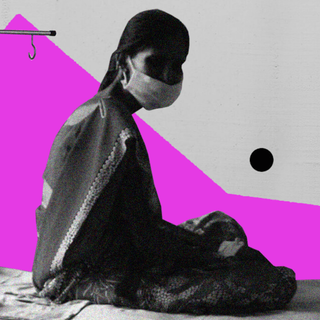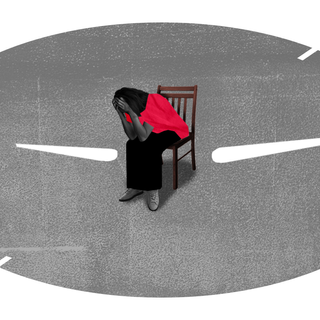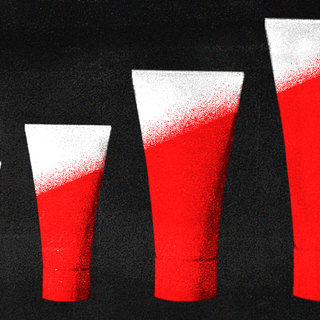
Body Matters: Fatphobia in a Gynaec’s Office
“She started commenting about my body weight… it was only last year that I started feeling okay about my body… That incident took me at least 1000 steps back.”

In ‘Body Matters,’ we explore the lived experiences of OB-GYN patients in India who defy stereotypical genderexpectations, and challenge what it means to be a body that matters in medicine.
It is a well-known but unfortunately less-understood fact that weight gain is associated with a number of gynecological conditions. PCOS and hypothyroidism are just some of the many medical diagnoses leading to weight gain that patients often cannot help. Even when fatness is unrelated to a medical condition, it is the most visible form of marginalization because it precludes access to treatment. Often, doctors dismiss patients’ concerns right at the outset In a gynecologist’s office, this can lead to many health concerns themselves going undiagnosed due to a pervasive cultural stigma against fatness. Four patients — N, P, A, and S — and one doctor, Dr. Ankita Gharge, weigh in on what such an exclusion looks like and how we should change the way we treat fat patients in gynecology.
When Doctors Refuse a Diagnosis
N*: Around January 2022, while we are slowly getting back to working from office again, I wanted to get a full-body check-up because I had a doubt that I may have PCOS. I’ve always had irregular periods, but the gaps increased during lockdown and I also gained considerable weight. I’m a person who weighs around 80 to 90 kilograms. So I went to a gynecologist in Chennai at a multi-specialty hospital. Before even the doctor could see me, the person who was taking down my medical history asked me, “Have you always been this fat?” I was expecting fat–shaming, yes. But this was too direct. After all this, I met this senior gynecologist, who is probably in her 50s. She asked me where I work, and since I’m in the media, I told her how my work and sleep cycles are very unpredictable. She listened and I told her how I have irregular periods… I was expecting her to say something about how it relates to my work schedules and stress and it will be alright if I make adjustments to it. But she said, “wake up at 6 am. Walk. Reduce one kg in one week and meet me. If you don’t reduce weight I won’t treat you.” I was furious and left the place and decided I’ll never see her again. As a person who’s been in fitness on and off, I don’t know why gynecs propose a one-size-fits-all solution. She basically refused to delve further into the reasons for my irregular periods — just because I was fat.
Dr. Ankita: I have patients who when they went to a gynecologist and faced fat shaming were scared to visit any doctor in the future — and even other doctors like endocrinologists, dermatologists, and so on. They think that every doctor is going to treat them like that. Doctors don’t see that if they had to lose weight and they knew how to lose weight, they would have lost it already. Right? We need to empathize. It could be that they’re gaining weight because of hormones or because of insulin resistance or other underlying conditions — doctors need to understand the basic science.
When Doctors Give Medically Unsound Advice Rooted in Fatphobia
P*: I have always been a fitness enthusiast and before I conceived my firstborn, I was majorly into High-Intensity Interval Training (HIIT) and strength training. Then I had a cesarean section delivery. My OB-GYN, a very famous and reputed lady doctor well in her 60s, shamed me for being unable to breastfeed initially as my breasts had chaffed badly and had started bleeding. She told me that I would remain fat and obese if I didn’t start breastfeeding, and that’s what happens if one’s too coddled and can’t bear a little pain.
Three months later I had developed sciatica with severe pain in the site where they injected the spinal anesthesia. I could barely walk, toss, turn, or even stand properly. The pain was unbearable all the way down to my left leg. I visited another doctor who told me — looking me up and down — that I’m having back pain because of my obesity and I need to stop looking for medical doctors but look for a dietician instead. “Baby and all is okay, but start losing weight. Don’t make excuses because you have a baby. Exercise and go for runs,” she said. She had my file with her, which mentioned that due to C-section complications, my entire abdomen had to be opened up and that I shouldn’t be doing excessive physical exertions for at least a year. I cried that day because a) they were both ladies; b) They understood my condition as they were both doctors. Earlier they were shaming me for muscle building because “women aren’t supposed to do that”; now they were fat-shaming a new mother who has just given birth and is breastfeeding.
Dr. Ankita: There are many classification systems of obesity. The most commonly used is Body Mass Index (BMI); another one is where they measure your abdominal circumference and take a ratio of your waist and your hip. If your waist and hip ratio is more than one, that is obesity. But that [these metrics] should change because in men, women, and also in different body types, it should be normal. The studies on this are [universal]… It should not be generalized. Obesity needs to be redefined — there should be new parameters [not just based on the physical appearance]. And there should be new studies which should be carried out for obesity. Other factors should be taken into account too: blood parameters, cholesterol, sugars, insulin, and lifestyle all need to be accounted for [not just appearance, height, or weight].
When Doctors Don’t Treat For the Issue at Hand
A*: I’ve always been on the heavier side since puberty hit me. I used to get irregular periods as an early teen. A gynecologist who is very reputed in my locality always had only two things to say: “you’re overweight, let’s get a thyroid test done.” And my thyroid reports have always been normal to date. Still, without saying anything else, she asks me to exercise and lose weight.
I’ve also been having terribly painful periods since I was around 18 (I’m 21 now). I was forcefully taken to the same doctor by my mom. She didn’t even let me speak about my concerns, cut me off, and said it was just because of my weight and I need to completely cut off sugar, dairy, oils, white rice, bread, coffee, etc. It’s still not normal but I can’t brave another post-gynecologist visit-breakdown anytime soon. The next time I go, I’d actually be praying that something is actually wrong in my system and it’s not just what they think, you know? As if I have some responsibility to prove them wrong. So much pain can’t go unexplained like that.
And I’ve read about so many women who were given the same treatment. Even after they lost weight, nothing changed menstruation wise. And I might be overweight — but I’m not unhealthy. I’m fitter than most of my thin friends.
Dr. Ankita: Many doctors think that people who are obese have irregular periods and all those who are lean have regular periods — but that’s not the case. We need to understand all the factors and analyze what kind of obesity is not okay. This is why obesity is also classified in science and it is very clear that this is normal and this is abnormal. We have also seen people who are lean who end up having heart attacks. Why? Because they have cholesterol — the fat which is stored around your organs is more dangerous than the fat you have on your external body. Which is why your overall activity and lifestyle are very important, rather than becoming lean or becoming a certain shape.
In our books, it is mentioned that if you lose 5% of the weight, which you are having right now, your PCOS will become better. So which is why people tell very point-blank to patients to go and lose weight — this approach should change.
When Doctors Give Unsolicited, Medically-Unrelated and Dangerous Advice, Compromising Trust
S*: Up until August last year, I had never visited a gynecologist because being from a small city, it was never a part of my personal care regime. Last year I faced some issues so I thought I’ll book a visit. When I did visit this doctor in Gurugram, she noted my details and said that everything is normal and I shouldn’t worry about anything. I was relieved but instantly after 15 seconds, she started commenting about my body weight and how by the time I turn 30, I will start looking undesirable. I was taken aback and triggered. I have been going through body issues ever since I remember; it was only last year that I started feeling okay about my body and developed a healthy relationship with food. That incident took me at least 1,000 steps back. She went on to ask me to cut carbs completely and eat just one roti for a meal — by this time I just wanted to get out of the room. I regret not calling her out, but then I also realize the trigger intensity was too high. I remember crying on the streets for 15 minutes as soon as I stepped out of the clinic. I haven’t visited a gynecologist ever since. I really think it will require a lot of time for me to trust a doctor now. It was horrible. I was going through irregular menses and spotting. I think overall her so-called “diet” was actually very harmful from what I have learned. I didn’t actually follow the diet but if I had been naive and unaware, I definitely would have and that would not have turned out okay.
Dr. Ankita: I had a patient who started losing weight on her own. She did nothing, she was doing her regular stuff every day, and she started losing. And then everybody started appreciating her; “wow, you’re looking good you’ve lost weight.” But she was feeling very tired. And she had lost her appetite also. So, when she realized that this is not something good, she came for tests, and we eventually [diagnosed her] with breast cancer.
We need to change how we define obesity.
The above insights were obtained from four anonymous patients and one doctor — all of whom had vital things to share about what the doctor-patient relationship should not look like, and a roadmap for what it should look like. The narratives here are as told to The Swaddle, and are preserved for maximum authenticity of lived experiences. They have only been edited and organized thematically for the sake of clarity and conciseness.
A previous version of this article incorrectly stated that hyperthyroidism is associated with weight gain.
Related


The Controversy Around Recognizing ‘Prolonged Grief Disorder’ as an Official Diagnosis
